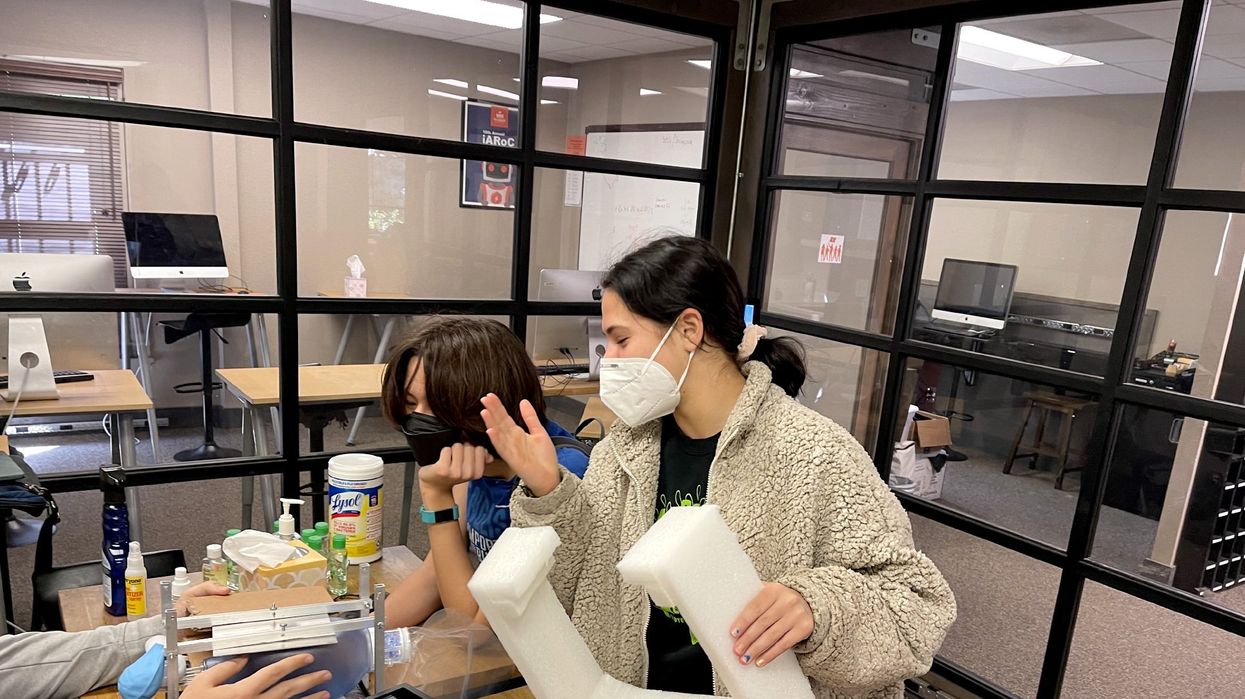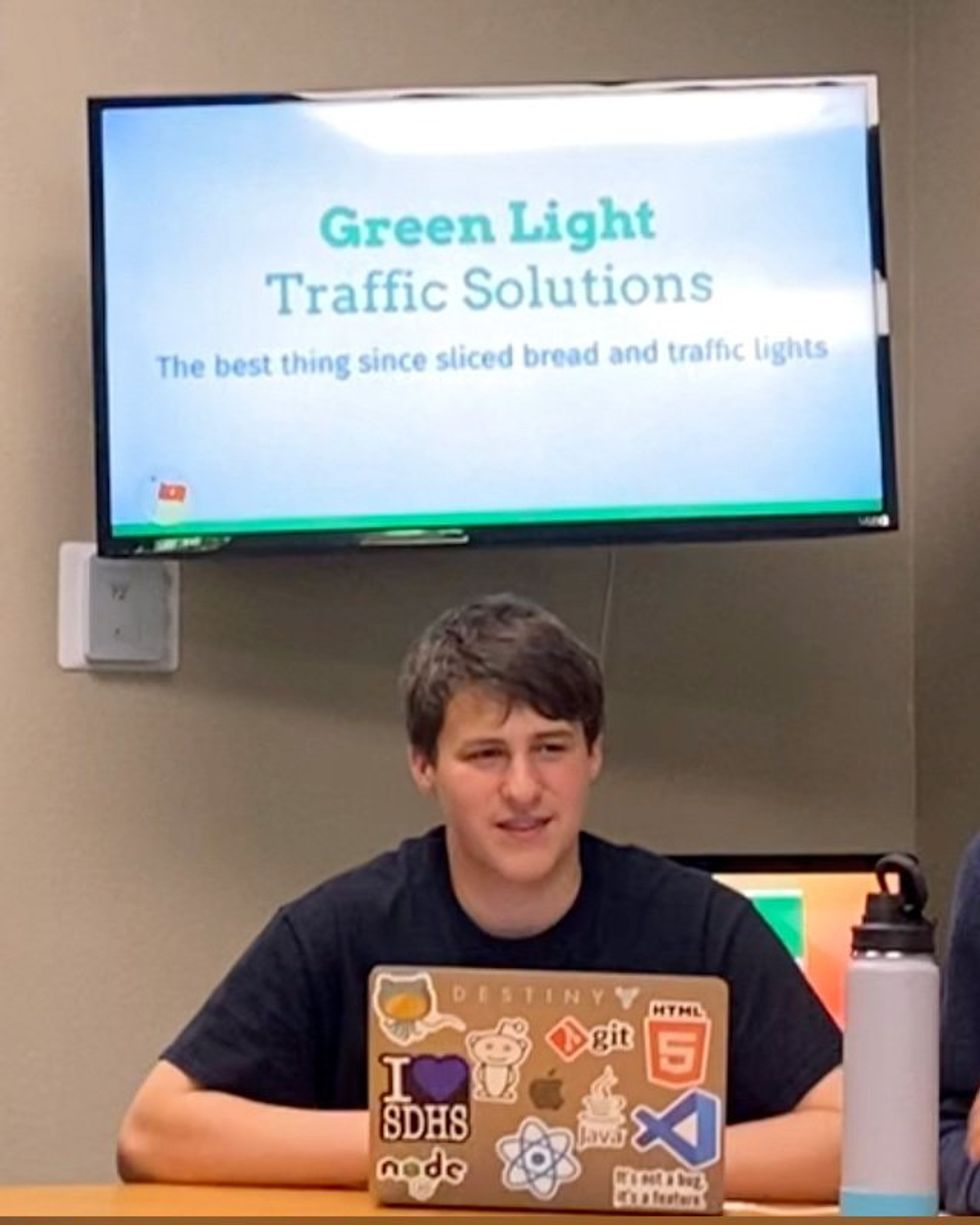An After-School Program Teaches Teens Java and Python

After Vic Wintriss sold his sports-imaging company, Wintriss Engineering, to his cofounders in 2006, the electrical engineer was looking for a project to keep himself busy. Wintriss Engineering, based in San Diego, makes smart cameras for sports imaging such as tracking golf balls and inspecting paper, textiles, and plastics. While discussing with his wife what his next career move should be, an idea suddenly came to him in the form of a vision.
I'll never forget it," Wintriss recalls. It said: You're going to teach Java to kids in a nonprofit school.' I didn't even know Java."
At the age of 75 he went back to school to learn the programming language. After teaching the subject to teenagers at his church, in 2006 the IEEE life member established The League of Amazing Programmers. The San Diego-based nonprofit after-school program teaches coding in Java and Python to students in Grades 5 to 12. The program offers 10 levels of coding, from beginner to advanced. It is the only one in the United States that awards the Oracle professional programming certificate to high school students.
The league was recently named Nonprofit of the Year by its California Assembly district's representative, Tasha Boerner.
It was a privilege to recognize The League of Amazing Programmers for the critical work they are doing in my district to promote equity in our digital age," Boerner said in a news release about the recognition. Their dedication to helping our youth, especially girls and underrepresented communities, is transforming lives throughout San Diego."
Java, Python, and game designWintriss, who is now 92, had some prior teaching experience. He was a Navy flight instructor and taught Sunday school classes for several years. To start fulfilling the Java vision he had, he began holding coding classes at the church. The course became so popular that he rented a larger space and bought more computers. Wintriss continued on his own until, he says, it became overwhelming.
That's when he launched The League of Amazing Programmers. He retained professional programmers who volunteered their time to teach 90-minute weekly in-person and virtual classes seven days a week. The school's monthly tuition is US $260, and tuition assistance is available.
This year 200 students are participating in the program. About half of them are from underserved communities, Wintriss says.
The students who have completed the program have been amazing. The computer programs they write are just totally incredible." -Vic Wintriss
The classes are held in the San Diego area, including at the Valencia Park/Malcom X and Central libraries and the Digital Start North County tech hobby store in Fallbrook. Its main campus is a Carmel Valley office building in northern San Diego.
The league recently added an Introduction to Game Design class. Seasonal camps on artificial intelligence, Minecraft modification, and Web development are offered as well.
The students who have completed the program have been amazing," Wintriss says. The computer programs they write are just totally incredible."
The league's students put their skills to work during the COVID-19 pandemic. They were taught how to design a low-cost emergency ventilator system using a Raspberry Pi computer and automated versions of manual bag-based resuscitator devices, commonly known as Ambu bags. The compact, balloonlike bags have a soft air reservoir that can be squeezed by medical professionals to inflate a patient's lungs.
Oracle certification successMore than 50 students have passed the Oracle Professional Programming Certificate exam, which is not easy for a high school student, Wintriss says. Students who take the exam are typically in the 11th grade.
Once students earn the certification, they can garner a high salary, Wintriss says.
If you've got the Oracle certificate, any employer will hire you as a programmer without a college degree, although we encourage our students to go to college," he says.
Some students have gotten part-time after-school programming jobs that pay about $60 per hour, he says. Former students who have landed a full-time job have told him they are earning more than $100,000 annually.
Wintriss says he hopes to expand the program to other states.
A student testimonial Sam Sharp, 15 years old, has completed the after-school program's Java course and plans to take the Oracle certificate exam. Vic Wintriss
Sam Sharp, 15 years old, has completed the after-school program's Java course and plans to take the Oracle certificate exam. Vic Wintriss
One student who is attending the after-school program is 15-year-old Sam Sharp, an 11th grader at San Diego High School. His parents signed him up for the program when he was 8.
I've always been interested in computers," Sharp says. I've had this idea to make things that people are going to use in their daily lives. I figured that because everybody now does everything on their computers, I wanted to learn how to make things for computers."
Sharp is at the Level 8 stage and has completed the Java course.
It gave me a solid foundation for how programming works," he says, because it teaches you the object-oriented basics." He is now learning JavaScript and working on more advanced programming projects such as developing games and publishing Parakeet.Games, a Web game aggregator.
He says the league's program has taught him other skills such as creating a project from scratch, meeting deadlines, pacing himself, and leading teams. He also helps teach younger students the programming languages.
What appeals to him the most about the league's curriculum, he says, is its five seconds of fun" principle.
The concept," he says, is that students should get five seconds of just pure fun from what they've made or programmed."
He says he intends to take the Oracle certificate exam, and he plans to pursue a college degree in computer programming.